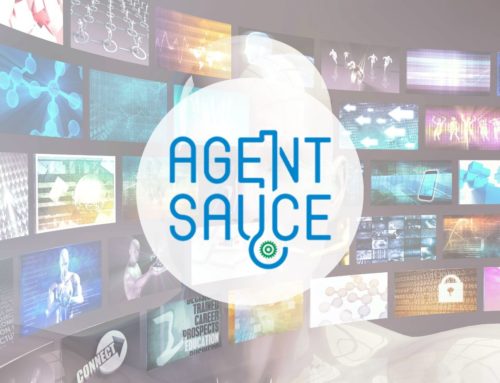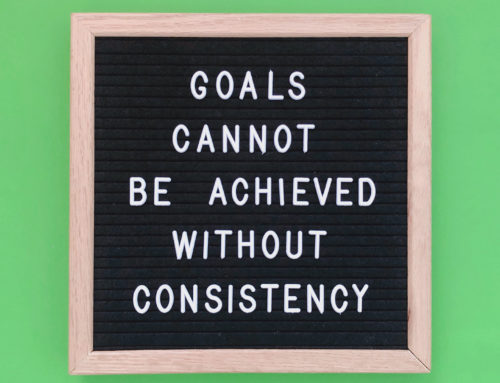Important Factors in Real Estate Millennial Marketing
Most real estate agents know that Millennials are one of the fastest growing segments of real estate buyers. With that in mind we sat down with our very millennial, Intern Austin, and talked about real estate Millennial Marketing.
Real Estate Millennial Marketing Take Aways
- Millennials account for 32% of all home buyers nationally.
- Half of Millennials find home online then find an agent.
- About half of Millennials found real estate agent through a friend or family member. Trust and transparency are big factors with Real Estate Millennial Marketing.
Millennial Marketing for Real Estate Agents Show Notes
- Millennials were born between 1980 – 1995. Generation Z is after Millennials.[1:10]
- Millennials trust their network [4:30]
- Half of Millennials find home online then find an agent. [7:00]
- Facebook/Instagram stories [9:00]
- Digitizing paperwork [10:10]
- Being the expert [11:30]
Millennial Marketing for Real Estate Agents Transcription
Adam Small: Good afternoon. This is Adam Small with Agent Sauce and this is the Real Estate Marketing podcast. We’re here in the studio of DK New Media and with me today is Doug Karr.
Douglas Karr: Hello Sir.
Adam Small: How you doing?
Douglas Karr: Fantastic.
Adam Small: Great, and Austin Day, otherwise known as, Intern Austin.
Austin Day: How’s it going?
Adam Small: All right Austin. How are you doing?
Austin Day: Not too bad.
Adam Small: Great. So, listen, today we’re talking about Millennial Marketing and since we have our very own millennial here, with intern Austin, figured we’d start grilling him and see what his thoughts are.
Douglas Karr: I like that.
Austin Day: Yeah, me too.
Adam Small: Put him on the spot. Austin, what are your thoughts on Millennial Marketing in general?
Austin Day: So, I think it’s really interesting when, speaking about millennials in general, because a lot of people get the sense that millennials are really young. I mean, and they are for the most part, but they are …
Adam Small: Because a millennial just started, you know, not too long ago.
Douglas Karr: It could be, cause we’re old. Yeah.
Austin Day: Well, I mean …
Douglas Karr: Hey, hey, hey now.
Austin Day: Comparing it to me, but, so a lot of millennials are usually between the ages of 1980 to 1995, which technically I kind of barely make the cut, being born in 1995.
Adam Small: Okay.
Austin Day: After that is the generation Z, which is mostly the post-millennials. That’s anybody that’s born after 1995.
Adam Small: And really, anybody born after 1995 right now, you’re probably not doing a whole lot of marketing to in the real estate industry. So, you define the age bracket there, and you’re really on the very bottom edge of that, is that right?
Austin Day: Yeah.
Adam Small: Born in ’95, I suppose?
Austin Day: Thankfully.
Adam Small: Yeah, the year I went to bootcamp. You’re on the bottom edge of that. But the upper range of that, is another 15 years, right?
Austin Day: Yeah. Exactly.
Adam Small: Probably up to about 35, 37ish, right?
Austin Day: Yeah.
Adam Small: Definitely could be marketing to them, and trying to work with them. What else have you got?
Austin Day: Also, millennials actually just became one of the highest for home buyers at 32% nationally.
Adam Small: So, fully a third of all home buyers are in fact millennials.
Austin Day: Yeah.
Douglas Karr: Isn’t that funny, cause we tend to think younger.
Adam Small: Right.
Douglas Karr: But these are people that are starting a family and they’re [crosstalk 00:02:17].
Adam Small: Well, I mean, a lot of them are already well into having a family, if they’re at that high range, 37 years old, you know?
Douglas Karr: Yeah. Maybe on their second.
Adam Small: Yeah. Yeah. First one didn’t work out so well.
Douglas Karr: Just kidding.
Adam Small: So what other unique traits do we have regarding millennials and millennial marketing?
Austin Day: I think it is really interesting too. I mean, I noticed this just talking to a lot of friends my age. They’re a little bit older. I also found data to back it up, about half of millennials also found their real estate agent through a friend or a family member, so I think that …
Adam Small: So it’s still referral-based.
Austin Day: Yeah.
Adam Small: As opposed to online.
Austin Day: I think everyone thinks, just digital, digital, digital, when really … I mean if you have great referrals and testimonials, then that means a lot.
Adam Small: Well, that’s an interesting thing, cause if you look at some of the latest NAR stats, they’re always talking about how 90, 95, 85, 90% of your home searches start online. But, what you’re telling us is that, even though the home search may start online, they pick the real estate agent through a referral of some source.
Austin Day: Yeah, because, I mean, you can find a lot of stuff online, which a lot of millennials obviously like. At the end of the day you want somebody that has knowledge and you wanna be able to trust a real estate agent to be able to guide you through something that’s a really big, scary purchase like buying a home.
Adam Small: Interesting. So what’s your source on that 32% number, first off.
Austin Day: The 32% came from the Harvard Business Review. A lot of these articles are from cases that they were doing … They were doing a huge study a couple months ago about, just the differences between millennials and generation Z and generation X.
Adam Small: What about the number of, where they found their agents? What about that?
Austin Day: Yeah, that was from the Harvard Business too.
Adam Small: So 45 to 50% of millennials are finding their agent through a referral, as opposed to strictly online and that came from the Harvard Business Review, as well?
Austin Day: Yeah.
Adam Small: That’s a very interesting stat. A lot of agents should really know that.
Douglas Karr: I think some of the data that I’ve seen on millennials, is they’re a little bit more flexible as far as doing less research and relying on their network for more information. I think that that’s probably, you know, that’s probably true here as well.
Adam Small: Right, Right. So they’re a bit more trusting of their network, than say, a lot of people, you know, older generation maybe that tend to do a lot more research.
Douglas Karr: Yeah, I think … You know, I’m just thinking about my own son. You know, he moved back to Indy, and he researched neighborhoods and stuff online, but simultaneously he was talking to his in-laws and everybody else about the neighborhoods and crime and everything else.
Adam Small: Perhaps it’s a combination of both referral and whatever it is you’re researching, but both referral from your network as well as doing your own research and then coming up with it, instead of just doing your own research and hoping that it’s accurate and that they’re not leaving out that 800 pound gorilla or elephant in the room that says “yeah this is a really high crime area” or something like that.
Douglas Karr: Well that, to me that points to the marketing aspect of it, right? And that’s that … so you know, our generation, we’re gonna research probably a little bit deeper by ourselves, we’re a little bit more confident because we’ve been around the block, so we’re gonna be looking things up left and right, so things like [inaudible 00:05:55] and having a website and everything are really critical.
Adam Small: Right
Douglas Karr: But younger people, if their network is the strongest and everything else, in order to build those relationships, you’ve got to have a great social media presence and be pushing that out for millennial marketing to work.
Adam Small: You’ve got to find your way into their network somehow.
Douglas Karr: Yeah, exactly.
Adam Small: Right? That’s what it comes down to.
Austin Day: And I think that’s the biggest thing that millennials look for is just transparency, if they can see a real estate agent being really transparent on their social media sites and actually having a little bit of a presence, I mean if they’re looking at their Facebook and Twitter maybe, and then there’s like a lot of cobwebs and it hasn’t been visited in a while, it might kinda send a negative …
Adam Small: They might look at that and that’s all the research they need because they say well, you know, they’re not active, they’re not doing this anymore because it’s a year old or been 6 months since they’ve touched anything.
Austin Day: Or even if they’re just posting just listings and that’s the only thing.
Douglas Karr: Right
Adam Small: Right, right right.
Douglas Karr: Not building any type of rapport with the brand.
Austin Day: Yeah, no personal brand or anything like that.
Adam Small: Interesting, interesting. What other stats you got on Millennial Marketing?
Austin Day: So, as you were talking about earlier, there’s also data that was kinda going with what you were saying about 94% of millennials using online websites for home searches. And then 51% of millennials also found the home that they ended up buying from looking online first, too.
Adam Small: Oh, so that’s interesting, so they’re finding the home they want, right, online and then they’re going and finding an agent to show it to them?
Austin Day: Yeah.
Adam Small: Through their network. So they’re really doing a lot of the hard work for an agent in so far as showing the listings go. So they’re doing their research, narrowing it down and then finding the agent through their network and then doing their purchase, right?
Austin Day: Yeah, exactly.
Adam Small: Interesting.
Austin Day: And that’s the process I took when I was looking for a home last year with me and my friends, because, I mean that was the only way I knew how. No one showed me, obviously.
Adam Small: Right, so then when they go and they get to the realtor, selecting the real estate agent aspect of it, they’re going through their network though. What are they looking for when they’re going through their network? What is probably one of the most important pieces of that in decision-making process?
Austin Day: I think the biggest thing that they look for is really just trust and just being transparent, because if you know that a real estate agent is actually a real-life person and you look on their Facebook and they’re talking about “oh, here’s an amazing coffee shop right down the street from this property that I have” and that they’re actually kind of looking through your shoes and seeing what kind of stuff that you’re looking for if you’re buying a home [crosstalk 00:08:34].
Adam Small: That you might be interested in, right, interesting. What else you got?
Austin Day: So, another thing I thought was really interesting, you guys might not know too much about it, it’s called “stories” on Facebook and Instagram?
Adam Small: Right.
Douglas Karr: Wait a second, we know about that stuff!
Adam Small: He’s showing his age by making an assumption there.
Douglas Karr: I’m just kidding.
Austin Day: Sometimes I’ll bring it up and they’re like “what’s a story?” And I have to explain what a story is for a while. But, an interesting thing would be to post it on a maybe housings, or house listings and other things that involve your life and building your personal brand on stories instead of just posting them, because stories are so much quicker instead of posts for people to look at, because the biggest thing that millennials want is something that’s really efficient, effective and really fast. If you think about anything else, you want a ride, you call Uber, if you want pizza, you hurry up and you do it online real quick, I mean everything …
Adam Small: So it’s an attention span sort of thing.
Austin Day: Exactly. So …
Adam Small: Okay, interesting. So short and to the point is what you’re getting at, right? Don’t waste a lot of time with fluff, if you will, there’s plenty of fluff marketing out there, and even in phone calls and stuff, when I get phone calls and the person does not get to the point, you know, I find myself cutting them off and saying “okay what can I do for you? What is it that you need?” So short and to the point. What else you got?
Austin Day: And another thing that a lot of millennials are looking for is, I know I look for it, paperwork. No one likes paperwork. If you can digitalize most of that stuff, I would say do it, if you can. I mean, it just helps everyone out.
Adam Small: Right, well you know, unfortunately a lot of that paperwork aspect of things it can, some of it very much so is digitized, but even getting to the closing still, we closed on our house a couple years back, and it was a stack of paper probably an inch-and-a-half thick, and it’s just like come on, this is amazing how much paper is here. And of course, we didn’t need to sign every single sheet or anything, but, you know, it felt like we were in there for an hour or two, just signing papers.
Douglas Karr: The cool thing here for millennial marketing is, though, the opportunity for technology and digital leading all the way up to that point is awesome.
Adam Small: Right.
Douglas Karr: You know, mobile tours and visual, you know, those visuals online and being able to search, being able to communicate, fill in your own data, you know, those aspects of it, if you make that easy for a millennial, they’ll service themselves, as far as they can go.
Adam Small: As far as they can, exactly.
Douglas Karr: And so, if you don’t have that route for them, they might not take yours, you know, where they’ll look to another real estate agent.
Adam Small: So digitize as much as possible, just for the sake of convenience.
Douglas Karr: Yeah.
Adam Small: Right, right right, so …
Austin Day: And another thing, just harping on how kind of a huge decision that is for millennials in buying a home, it’s really important for that real estate agent to be the expert for that person, and really, I think it would be helpful to have, maybe, infographics and stuff like that to explain the process of buying a home to millennials, because they just don’t understand a lot of that stuff and some of that stuff is really hard to Google, and if you provide that advice, things that they can’t Google, then I think that can be really beneficial for them.
Adam Small: So, so what you’re really saying there is, provide some insight into the path itself. Doug was just talking about digitizing the path, right? But provide some upfront insight into the path itself, what to expect when you’re buying, these are the steps involved in buying, or these are the things involved in home-ownership and things you can expect as a homeowner to provide a lot more insight without actually, necessarily, having to do a purchase, and go through it and go “okay, what next?” You know, so …
Austin Day: And I think that really goes into, just building your referral program too, because once you provide the insight for someone like a millennial, then they’re obviously gonna be one of your biggest fans and recommend you to all their friends who are looking for a house.
Adam Small: Oh “use my agent, she told me everything that was gonna happen, right up front, and I knew exactly what to expect and I knew this was gonna take a while and that was okay with that. When this didn’t happen as fast as it should have, I knew it didn’t because I didn’t get the notification like I was supposed to and I knew it because the agent told me this is what to expect.”
Austin Day: Yeah.
Adam Small: Yeah, interesting, very interesting. So, got anything else on millennial marketing?
Austin Day: I mean I think as things get different, they still stay the same. If you’re still, I mean, if you can get your referrals and testimonials in and get people to believe in what you’re doing and you’re doing the right things, I mean you’re explaining them how to purchase a home, then I think once you build that network it really can just compound for you after that.
Adam Small: Interesting. Doug, any final thoughts on Millennial marketing for real estate agents?
Douglas Karr: No, I mean, I think it’s pretty clear to … we’re working with a generation of people that technology was in their hands early on and so they’re a lot more used to it, you know, whereas the older you get, kinda the less reliance on technology is there. To me the important things that you stressed was: one, obviously the transparency and honestly, and second was them being able to find you, so being in the networks and being active and then the third was aggressive adoption of technology, you know, that you have to be on text messaging and email marketing and have a great website and be pushing the social, be communicating in social, like you said, not just pushing listings out, and so I think if a real estate agent was aggressive doing those things, they could captivate a market that, in all honesty, I think is a great market for real estate agents, and that’s the first-time home buyer.
Right? Those are the ones that typically get approvals a little bit quicker and everything else because they don’t have a credit history that might be impacting them too much and everything so, yeah.
Adam Small: Interesting. Yeah I guess from my perspective some of the take aways were … you talked about technology adoption, but you know, digitizing the path, making it easy as far as possible down that road to actually buying the home and doing what you can there, which again, is technology adoption. And then the other one was the network. I mean, the vast majority of most real estate agents income comes from referrals and such and finding a way to appeal to the millennials has been a challenge for a lot of agents. You know, knowing that that’s where the millennials are still looking is a good sign for most agents. I think they feel like the millennials aren’t looking through their referral network, I think they think that they’re just online and that sort of thing, so I think the take away there is beef up that network, not only socially but also social-networking and stuff like that, but also in-person and that sort of thing and remind your current clients who have kids that fall into that millennial range, “hey, you know, I can work with them too.” So, that’s a very interesting aspect of it.
And then, being the resource, you know, you talked about transparency and that sort of thing, but being the resource for the information I think was probably another really strong take away there.
Alright well great. Thanks for joining us in our conversation on millennial marketing for real estate, if you have any questions, feel free to contact us at agentsauce.com or info@agentsauce.com. Thanks and have a great day.







